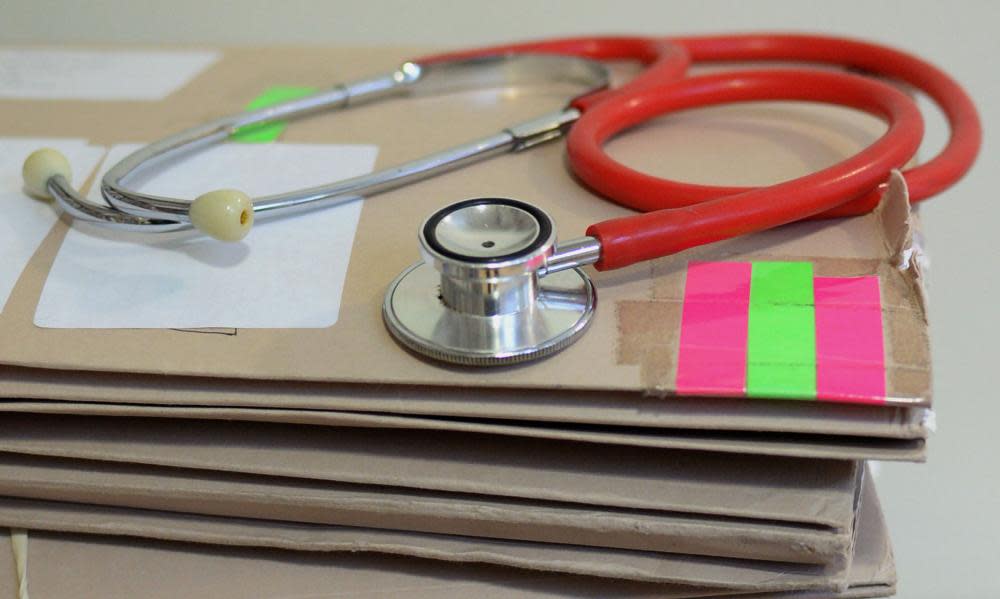It wasn’t feminist theory that cured my anorexia – it was having something to eat for

A rather sweet news story emerged the other week, in which it was claimed that studying feminist theory could help anorexics with their recovery by teaching them how “cultural constructions of femininity” can lead to “body distress”. Now, I am of the opinion that feminism is the answer to pretty much everything, so the idea of bell hooks and Kate Millett swooping in to save the day where all those medical professionals failed certainly has its appeal. So, like I say, sweet – but also a teensy bit annoying. I would never dissuade anyone from reading feminist theory, but the suggestion that a mental illness can be treated by argument feels a mere skip from saying its causation is similarly straightforward. Gender influences, like cultural influences (fashion models, women’s magazines, all the usual suspects), play a part in anorexia’s external manifestation, but the causes are as deep and knotty as a tree root. Mental illness, by its very nature, defies logic.
Since I first wrote about my own experience with anorexia in this paper many years ago, I’ve received, on average, an email a week from parents, siblings and teachers about someone they’re worried about. Over a period of 17 years, that’s a lot of fear and love and pain in my inbox. The stories vary – a mother who has fainting spells, a sister with legs so thin, you can circle them with your thumb and forefinger – but the last question is always the same: “How did you recover?”
I’ve been thinking of writing about my recovery for a while. Not, alas, because I think it is a universal cure – every anorexic’s experience is utterly individual, which is part of the reason I query any mooted general solution – but because you hear so few happy endings to experiences such as mine.
Between the ages of 13 and 17, I had six long-term stays in psychiatric units, plus an emergency admission to a general, and of all the girls, women and men I met in those stays, I know of only three who recovered. The others, at least those I know about, are either still stuck in the narrow twilit world of anorexia, or dead. There was Nicola, who slept in the bed next to me in the Maudsley hospital for six months, whose death from organ failure I learned about from the Daily Mail 10 years after we hugged goodbye. And there was Fritha, whose grace and kindness made me idolise her when we were in the Priory together, who later killed herself. Why did I recover and not them?
Luck and timing, mainly. I was extremely lucky to have found – after many false prophets and worse – a wonderful doctor, Professor Janet Treasure, who was the first medical professional I encountered who understood me and who I couldn’t outsmart. That she was a woman was, for me, a bonus, and I felt more comfortable talking to her about body image and sexuality than I had with previous male doctors. After I left hospital for the seventh time, I was offered a place at university, but I was losing weight again; Prof Treasure said if I lost any more, they’d tell the university I was too sick to go. I’d worked so hard to keep up with my school year – doing my GCSEs in three months while in hospital, my A-levels in a year – that the thought of falling at this final hurdle was too much: at last, I had something to eat for. My ambitions for myself had, finally, become stronger than the illness.
I understand why some doctors tell patients to cut themselves off from their outside life and focus on their recovery – one doctor dropped me because I refused to quit school. But, for me, having a connection to the world outside was my lifeline out of the land of sickness. I was also lucky to be young, so I only had to slip back into schooling when I left hospital, as opposed to trying to find a job.
The biggest motivator for me was not reading feminist theory, or any other academic idea, but seeing the painful reality of the alternative. In hospital, I met women who had been sick for more than 30 years. At some point, I was able to swim to the surface, look at them in suspended animation beneath the waves, and think: “That is not going to be my life.” And it wasn’t.
But it so easily could have been. I was lucky in my specifics, but when you recover, you are scarred for life. Even now, when I go out to eat without studying the menu obsessively for days before, the illness is there, just below the ice. Every year the ice gets thicker, but going through something like that sucks out a little bit of your soul. You know how easily you can slip past those who love you into a dark night that they can’t reach. It also means I’m always standing a little to the side of myself, looking at the life I have, and thinking about the one I didn’t.

 Yahoo News
Yahoo News 
